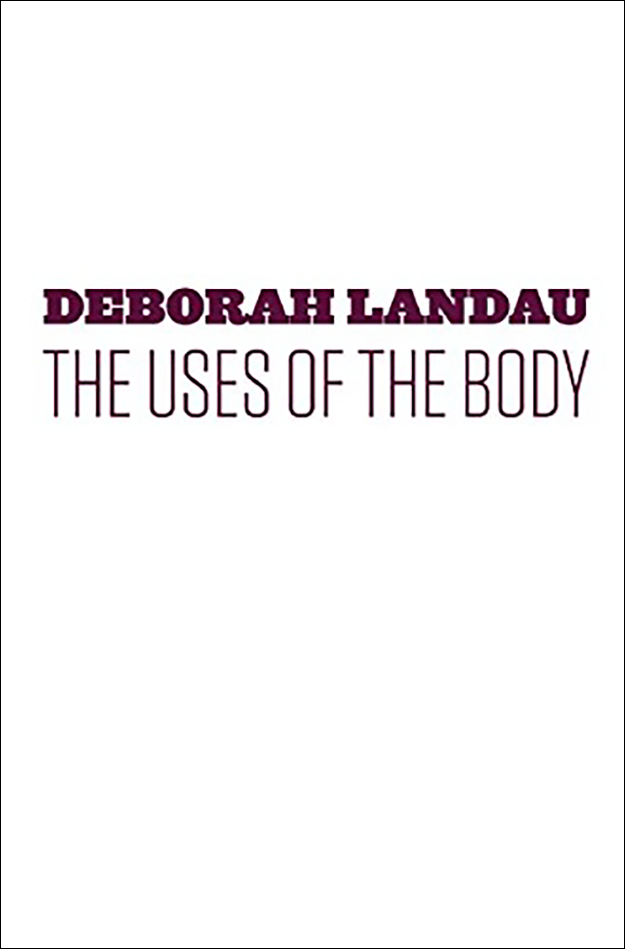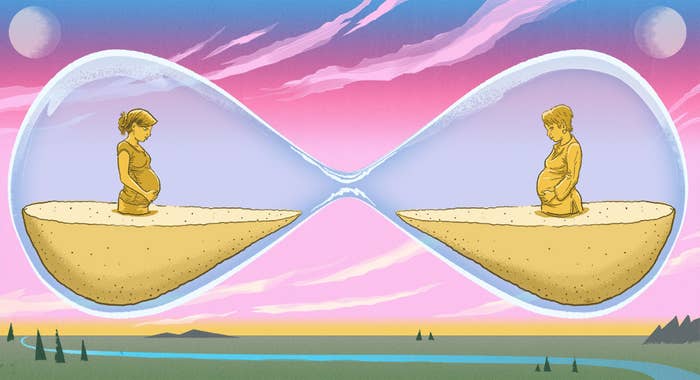
An unsettling thing about e-readers is that you can't easily sense how far along you are in a book — the feel of the object in your hands never changes; there's no tactile shift to signal that one is at the beginning, or midway, or approaching the end. And sometimes life feels like that, too.
We already did everything. That's how it seemed. I'd already grown up, gone to grad school, married, landed a job, had two kids, written some books, and now what? Do the same things again and again until I got too sick or old to do them, and then die? Nothing is new anymore, my grandmother complained at 90. I felt that way at 40.
Still, there's a luxuriousness to being at the midpoint. There's enough experience behind you so that you know who you are — you've made a life — yet there's a sense of plenty still ahead. I'm not in physical pain, I'd tell myself, rushing to the subway. I'm not hooked up to an oxygen tank. I get to do my work and raise my kids and run around this city with my friends. This is the good part.
But this sense of being in the middle, it's tentative, provisional. If I'm my grandmother, who died in her nineties, I'm in the middle of my life; if I'm my mother, who died at 54, I'm closer to the end.
How did we get here so fast, my mother asked, just before she died.
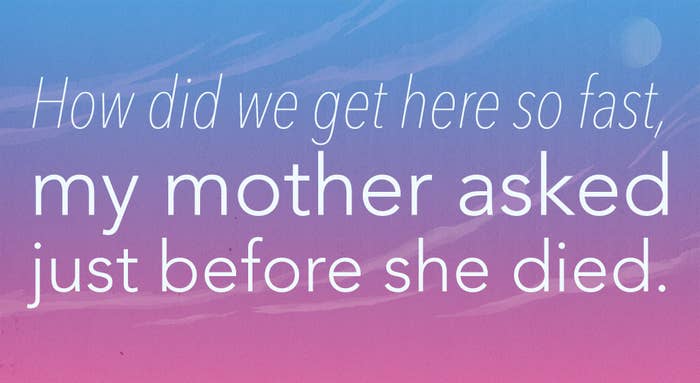
We like to think we know where we are along the road, and it's radically disorienting to find oneself at an unanticipated and completely different place on the map. Any disruption in life chronology causes vertigo. For me, instead of the dreaded lurch forward, life looped back. A decade after my second son was born I found myself unexpectedly pregnant again.
It was summertime. I'd returned from a month working in Paris; my husband was happy to see me. Our boys were away at camp and we were alone in the lazy late July light of our blessedly empty apartment. When I think back on it now, that place in time has a kind of mystical, luminous charge; we had no idea we were summoning a new person into our lives.
I'm pregnant. The thought shook me awake in the middle of the night a few weeks later. When an EPT stick confirmed this, my husband and I laughed, shocked and weirdly happy. I began to wait for the miscarriage, which I was sure was coming.
I think you're going to carry this baby to term, the attending said, when anxiety landed me in the ER. We have a heartbeat, I told my husband on the phone from the hospital parking lot.
Should I have this baby? I should at least consider my options. But I couldn't get past the question to imagine what an answer of no would mean. With a new heartbeat inside me I was euphoric, still a part of the pulsing living world.

One summer the attic room in the vacation house was empty; the next it held a crib.
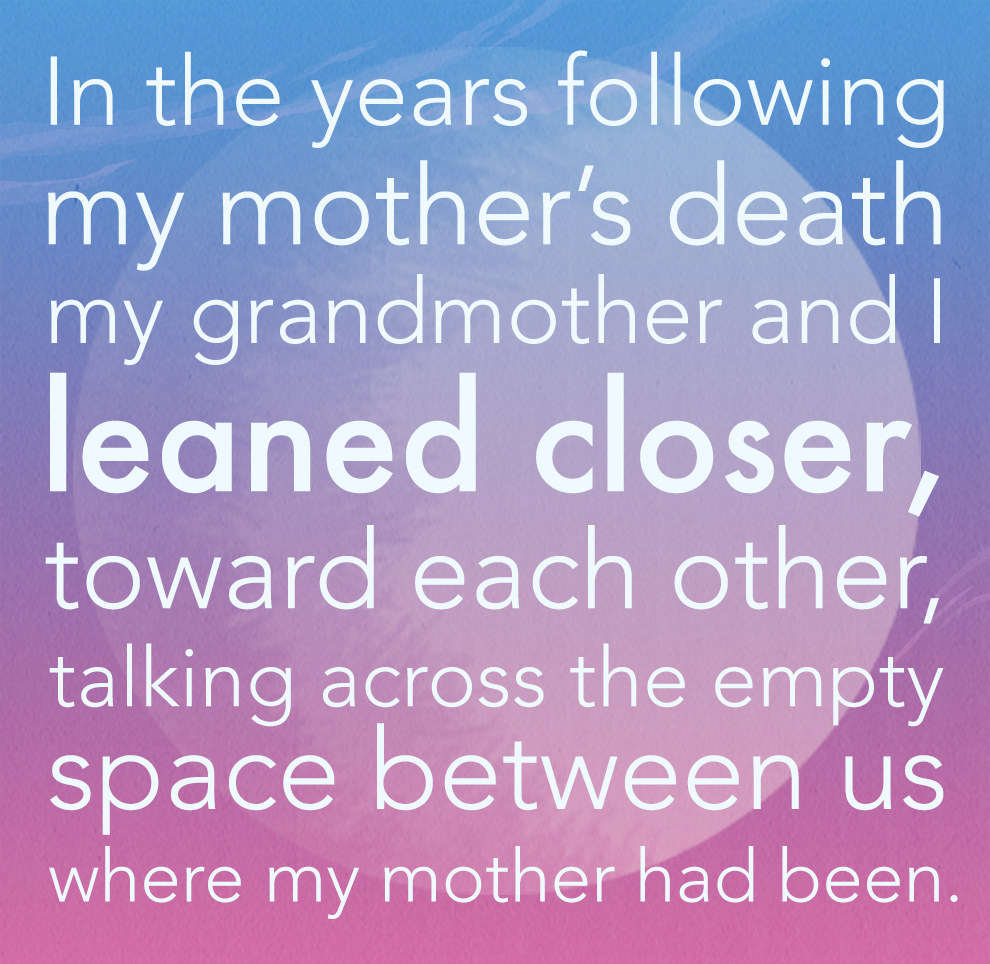
I was extremely close to my mother and treasured our relationship. She was the first in her family to go to college, and one of the only women studying philosophy in her grad program in the 1960s. She taught me it was possible to have both work and love — and she taught me it was possible to love one's work. I so longed to speak with her as my life unfolded.
In the years following my mother's death my grandmother and I leaned closer toward each other, talking across the empty space between us where my mother had been. When will you get over this pathological grieving, my father asked, as my longing for my mother lingered 5, 10, 15 years. When my best friend's daughter was born, the intergenerational connection between women struck me painfully, profoundly: She's one of us, we agreed.
The day the genetic counselor called me at work to say that this baby was healthy, and a girl, I cried hard for a long time. Since losing my mother I'd been the only she in an all-male family — father, brother, husband, sons. Even the dog was a boy. I'd conceived and lost a baby girl between my two sons, which had made that absence feel sharper. And now, as if drawn from dream this new girl was asserting herself, a body preparing for breath.

You think you know where you are in the book of your life; you have a sense of chronology, there's an expected order of things. But my life circled back. After 20 years of marriage, a baby girl appeared. My husband celebrated his 50th birthday just before she was born. Our sons turned 10 and 14.
Life in rewind. We flipped back 10 chapters; the end seemed to recede. Home from the hospital, I spun my newborn daughter around to the Dan Zanes' song "The Wonder Wheel," my sons' old favorite, and felt a chilling and uncanny déjà-vu.
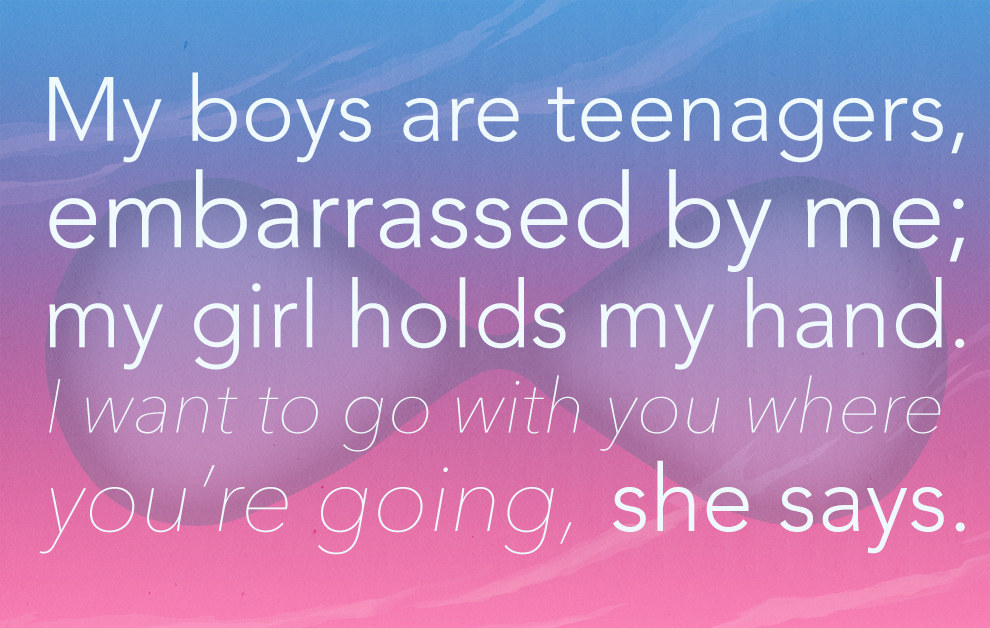
The parents we meet at the park in Brooklyn are younger than we are. Everything's new to them. Meanwhile, my friends from college are fretting over children's bedrooms soon to be emptied, and daydreaming about retirement. We're nowhere near that point; our daughter set us back a decade. Our oldest son is 17, but Miranda just turned 3. This fall we'll apply to preschools and colleges at the same time.
I get to do everything over again. Goodnight Moon and Madeline and Where the Wild Things Are, stroller to the playground and zoo, potty training and preschool potlucks and snowmen in Prospect Park, strings of sleepless nights. My boys are teenagers, embarrassed by me; my girl holds my hand. I want to go with you where you're going, she says.
The mother-daughter dyad, I'd found my way back there again. Remember when I was the mommy and you were the baby? Miranda jokes, as if sensing the lineage of women she's been born into, the way her presence came to inhabit the same place my mother's absence was felt.
I know this sense of turning back the clock is an illusion — her birth didn't make us younger, or our time on Earth longer — but it's an exquisite one. Since our daughter cast us back several chapters, life feels abundant and slower, thick with unanticipated narrative, our family's developing story. We are in it still.
***
Deborah Landau's third collection of poetry, The Uses of the Body, was named one of the "16 Most Exciting Books of 2015 from Independent Presses" by BuzzFeed, a "Book We Can't Wait to Read" by Vogue, and in the top "8 New Books to Savor" by O, the Oprah Magazine. Her poems have appeared recently in The Paris Review, The New Yorker, Tin House, Poetry, and the New York Times. She directs the Creative Writing Program at New York University, and lives in Brooklyn with her husband, sons, and daughter. You can follow her on Twitter here.
To learn more about The Uses of the Body, click here.
